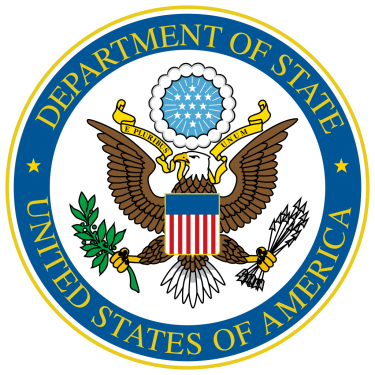Typical Difficulties Faced When Executing Letters Rogatory Requests
Typical Difficulties Faced When Executing Letters Rogatory Requests
Blog Article
Letters Rogatory Explained: Facilitating Legal Collaboration In Between Countries

Interpretation of Letters Rogatory
Letters rogatory are formal demands made by a court in one territory to a court in another jurisdiction, looking for support in obtaining evidence or testament for a legal action. This procedural mechanism is important in the context of global law, where lawful systems may differ, and cross-border cooperation is needed. Letters rogatory promote the celebration of info that might be essential for settling instances, especially in circumstances involving intricate global issues.
Normally, these requests emerge in civil, criminal, or administrative matters where a party needs proof that is located outside the jurisdiction of the requesting court. The letters function as a method to ensure that the concepts of due process are supported, allowing courts to access evidence that might otherwise remain inaccessible because of geographical or lawful obstacles.
The usage of letters rogatory is controlled by international treaties, bilateral arrangements, or residential regulations, which mark the treatments and obligations of the courts entailed. It is necessary to keep in mind that the implementation of such demands is not guaranteed; they depend upon the legislations and methods of the jurisdiction receiving the letter. Thus, letters rogatory are a crucial device for promoting legal teamwork and ensuring justice across borders.
The Refine of Issuing Letters Rogatory
Issuing letters rogatory entails a structured procedure that ensures conformity with both international and residential lawful requirements. The requesting event, generally a court or legal authority, prepares a formal demand detailing the nature of the support sought, the proof or info required, and the legal basis for the request. This document needs to be accurate to facilitate understanding by the foreign territory.

The following action entails sending the letters rogatory to the marked international authority. This is commonly done via polite networks or worldwide legal support frameworks, making sure that the request is received and acknowledged by the international court. The international court after that refines the request according to its own lawful procedures, ultimately responding to the asking for event with the in-demand info or proof, hence promoting worldwide legal cooperation.
Importance in International Law
The value of letters rogatory in global legislation can not be overstated, as they serve as an essential system for judicial participation across boundaries. These formal ask for assistance in lawful matters allow courts in one territory to inquire, proof, or the presence of witnesses from another territory, thereby promoting the administration of justice in transnational cases.
Letters rogatory are specifically essential in the context of globalization, where lawful disputes often extend several countries. They allow the collection of proof that may or else be hard to reach, guaranteeing that lawful proceedings are educated and fair. By fostering partnership in between judicial systems, letters rogatory assistance promote the regulation more information of legislation and promote common respect among nations.
Furthermore, the usage of letters rogatory demonstrates a commitment to global norms and principles of cooperation, showing the interconnected nature of modern-day lawful practices. It shows the value of adhering to established procedures and treaties, such as the Hague Convention, which supplies a framework for these demands - Letters rogatory. Ultimately, letters rogatory boost the efficiency of legal procedures, guaranteeing that justice is not prevented by geographical borders
Challenges and Limitations
Despite their importance, letters rogatory face numerous obstacles and limitations that can hinder their efficiency. One main concern is the differing legal frameworks and treatments across territories, which can bring about misunderstandings and delays in the execution of demands. Various countries might have distinctive needs for the validity of letters rogatory, complicating the process even more.
In addition, the typically drawn-out nature of worldwide lawful participation can hinder prompt accessibility to evidence or witnesses. This delay may negatively influence legal procedures or continuous examinations, particularly in situations requiring urgent action. The lack of resources and training in some territories can result in not enough handling of requests, leading to incomplete or inadequate actions.
Cultural distinctions and differing perspectives towards legal procedures can likewise pose significant obstacles. For instance, countries with much less official lawful systems may have a hard time to adhere to the step-by-step rigor expected in letters rogatory. Political tensions between nations can affect the readiness to carry out demands, resulting in a lack of participation and reducing the utility of this mechanism in worldwide law. These difficulties require continual dialogue and reform to boost the effectiveness of letters rogatory in lawful teamwork.
Situation Studies and Examples

Alternatively, obstacles official website can occur, as seen in a situation involving a European country seeking proof in a recurring criminal matter from a non-EU country - Letters rogatory. The procedure was delayed because of administrative hurdles and differing lawful criteria, ultimately impeding the investigation
These instances highlight that while letters rogatory can facilitate worldwide participation and expedite lawful proceedings, they likewise highlight the demand for clear interaction and understanding of legal frameworks in between countries. Such situation research studies underscore the significance of refining this tool to improve performance and performance in global legal matters.
Verdict
In summary, letters rogatory serve as a crucial device for promoting lawful participation in between countries, guaranteeing the collection of evidence and testament across jurisdictions. Their value in why not try here global law can not be overstated, as they advertise due procedure and enhance the performance of cross-border lawful process. Nevertheless, obstacles such as varying political tensions and legal frameworks might prevent their performance. Proceeded initiatives to improve the process and simplify are essential for promoting stronger global judicial collaboration.
Letters rogatory are formal requests made by a court in one jurisdiction to a court in one more jurisdiction, looking for support in obtaining proof or testimony for a lawful case. The requesting party, usually a court or legal authority, drafts a formal request detailing the nature of the support looked for, the proof or info required, and the legal basis for the demand. The foreign court after that refines the demand according to its very own lawful procedures, ultimately reacting to the asking for celebration with the in-demand info or proof, hence facilitating global legal teamwork.
In addition, the use of letters rogatory demonstrates a dedication to global norms and concepts of cooperation, reflecting the interconnected nature of contemporary legal techniques.International legal collaboration via letters rogatory is not without its real-world effects, as shown by different case research studies that highlight both successes and challenges.
Report this page